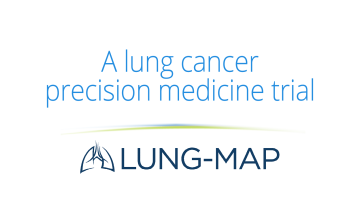Advocacy at SWOG: All Persons, All Places, All Times
In my early meetings with our then-new patient advocate committee (PAC) co-chairs Dr. Barbara Segarra-Vazquez and Anne Marie Mercurio, we discussed expectations for SWOG patient advocates. They had conversations on this topic with several other SWOG leaders, and then our PAC co-chairs put pen to paper and drafted a patient advocate committee charter, to provide guidance and set expectations. After several rounds of review and discussion with the full PAC, that charter is now in final form.
I cannot begin to tell you how much I love the vision and mission statements they’ve created.
You won’t be surprised to hear our advocates like to think big, but they can also execute simply. The vision statement opens with a precis that’s only six words (four if you don’t count repeats):
All Persons. All Places. All Times.
In this vision, the PAC exists to ensure that SWOG trials are accessible and available to all people impacted by a cancer diagnosis, regardless of their geographic location, and at every point throughout the disease trajectory.
It’s a vision as broad and deep as SWOG’s mission, with “disease trajectory” extending from pre-diagnosis to post-treatment, encompassing
- prevention and risk-reducing strategies,
- treatment with curative intent,
- those in long-term or lifelong treatment, and
- symptom management, preservation of quality of life, and post-treatment survivorship concerns.
Vision drives mission, and the charter then spells out the PAC’s mission: “to represent the voices of patients, their families, and caregivers in all aspects of SWOG research from concept development through dissemination of findings.”
The mission statement specifies collaboration and input “throughout the entire development process to identify potential barriers and any other areas of concern for participation,” with advocates contributing “ideas and suggestions that might facilitate representative and diverse accrual to SWOG studies.”
And to parallel their ideas for making trials accessible at every point along the patient’s disease trajectory, they also call for advocate involvement – representing the voices of patients and their family members and caregivers – at every stage of the research life cycle:
- from inception
- to execution
- through final analysis and publication
Complementing these inspiring vision and mission statements, the body of the charter details what is expected from those who engage in the advocate role within SWOG. The document extends just beyond four pages, briefly touching on
- core responsibilities of the advocate
- attendance at monthly PAC meetings and semiannual SWOG group meetings
- engagement and participation with colleagues and committees
- learning and meeting the expectations of the advocate’s designated committee
- the scope and use of professional development and travel funds (available through the generosity of The Hope Foundation for Cancer Research)
- formal evaluations and performance expectations
- term limits (advocates are limited to two five-year terms in a given role)
Anne Marie and Barbara have termed the PAC charter a living document, to be adjusted as appropriate over time, and their hope is that it will serve as an anchor for PAC members. They also hope it will help give all of us a clearer understanding of the role of patient advocates within the group.
They have asked me to extend their thanks to several people who provided key input and guidance while the document was being drafted – Dana Sparks, Jo Horn, and Dr. Don Dizon. I extend their thanks, and I echo it!
I also want to take a moment to extend my own thanks, personally and on behalf of all of SWOG, to three PAC members who, during the past year, have “termed out” of their roles as SWOG patient advocates:
- Florence Kurttila, who served on our gastrointestinal committee as our colorectal cancer patient advocate
- Tony Crispino, who served with the genitourinary committee as our patient advocate for prostate cancer
- Jack Aiello, who served as our myeloma committee patient advocate (Jack continues to serve as a SWOG representative on the NCI National Clinical Trials Network’s Accrual Core Team)
Thank you, Florence, Tony, and Jack, for your decade-plus of service to SWOG and our patients. You not only contributed significantly to improving the lives of current and future patients in your disease area, you were also contributing architects in building a truly exemplary patient advocate committee (and please believe me when I say, I feel your term-limit pain).
I also want to introduce those who now serve in these patient advocate positions (some of whom joined us as early as last fall’s group meeting):
- Lee Moultrie is now the prostate cancer patient advocate for the group
- Paul Gater is the SWOG patient advocate in myeloma
- Marielle McLeod is our new colorectal cancer patient advocate
We have one more advocate I want to welcome as well – Jacob “JJ” Singleton is our newest community advocate, representing the growing community of survivors living long-term with advanced cancer.
You can learn more about all of our advocates on our website (and read the new PAC vision and mission statements).
SWOG’s success in integrating our patient advocates and their contributions – their vision, priorities, and ethos – into the research we conduct is something we’re enormously proud of. That integration is an ongoing project, one we’ll continue working at until all of our trials, and the advances in cancer prevention, treatment, and care that come from them, are readily available to all persons, in all places, at all times.
Other Recent Stories



